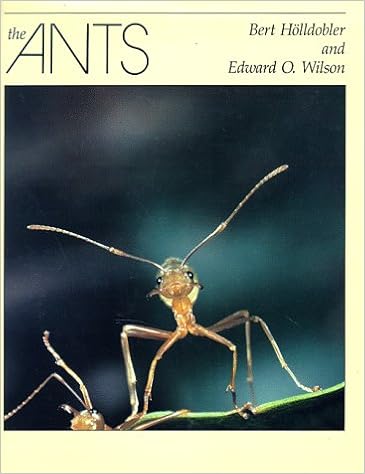Ants
What contributions did Wilson make towards learning about ants?
Wilson is considered the world’s leading expert on the study of ants. He discovered significant things about ants, including how ants communicate with one another- through pheromones, of which they transmit chemical substances. In his numerous books about ants, Wilson also explored the anatomy of ants, their physiology, history, ecological system, population dynamics, as well as their social behavior. Another concept he introduced regarding ants is the taxon cycle, which he use to classify ants. Taxon cycle consists of sequential phases of expansion and contraction of the species, influenced by changes in ecological distribution.
Why ants?
Ants and humans
Ants protect their nest fiercely, through constructing elaborate networks within their nests and poisoning or biting other colonies. They do so by having division of labour, living in multigenerational communities, and through practicing altruism, by having the capability to focus on collaboration with one another and sacrifice personal interests for the sake of the group. These makes ants eusocial. Few species qualify as eusocial animals, but ants and humans are both seen as eusocialists. Being eusocial has allowed ants species to survive for many generations, as the goal is to protect the bigger group instead of just the individual. Due to the commonalities between ants and humans, Wilson can thus explore human behaviors through the behaviors of ants.
In fact, human’s eusocial nature stretches beyond just what ants do. We are more advanced, in terms of our emotions, cognitive abilities, and sense of free will. Indeed, it is a blessing that we are eusocial, as it creates strong bonds within any groups, even if the group consists of strangers! This gives rise to in- group bias, where we favour the people in our group more than those not in our group, attributing positive qualities like trustworthiness without the need to actually know the individuals.
On the flip side, we feel as strongly about people not in our group, but attribute negative traits to them. This gives rise to out- group bias. This can lead to injustices in the world, such as sexism, racism, and homophobia.
Other similarities between ants and humans:
Fun facts about ants:
His books on ants:

Graphic by amazon.co.uk

Graphic by amazon.co.uk

Graphic by amazon.co.uk
To find out what other books he has written,


